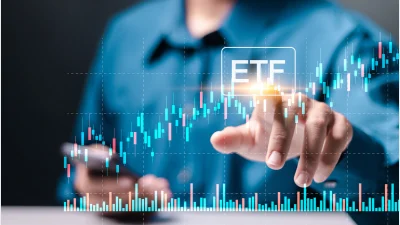ESG integration beneficial for investors



Environmental, social and governance (ESG) approaches have been attracting a growing interest from investors, with ESG investment encompassing $22.9 trillion of the world’s professionally managed assets, according to State Street Global Advisors (SSGA).
The study, which surveyed 475 institutional investors, found that the trend was expected to play a significant role in long-term financial outcomes.
According to 70 per cent of respondents from Asia Pacific (APAC) the integration of ESG strategy had significantly helped improve returns.
SSGA’s study proved a clear shift from the assumption that incorporating ESG criteria meant sacrificing performance at the same time.
The study also confirmed that the acceptance of ESG strategies was already widespread, with around 80 per cent of the respondents saying they had some form of ESG strategy within their portfolios.
However, the company stressed that while ESG adoption was gaining momentum, the total allocation to ESG exposures within investors’ portfolios still had room to grow.
Also, despite the increased adoption, the proportion of a portfolio’s assets with ESG exposure remained low in the APAC region, with only 19 per cent of respondents having more than 50 per cent of their assets exposed to ESG factors, while 43 per cent had less than 25 per cent.
According to the survey, top challenges for ESG adoption for investors in the APAC region included cost (59 per cent), limited demand from stakeholders (52 per cent), unclear value proposition (52 per cent), as well as lack of internal knowledge and capability (52 per cent).
At the same time, the large majority of APAC asset owners (90 per cent) aspired to “go beyond just screening to achieve fuller ESG integration in the next two years”.
SSGA’s head of global ESG, Chris McKnett, said: “There’s collective shift in the institutional investment world right now that has asset owners and managers thinking differently about the full implications of their investments”.
“For the majority, the question is no longer, ‘should we consider ESG as part of our mandate’, the question is ‘how are we actively pursuing opportunities with our investments that help us reach our financial goals, while encouraging change in the process?”
Recommended for you
Distribution of private credit funds through advised channels to retail investors will be an ASIC priority for 2026 as it releases the results of its thematic fund surveillance and guidance for research houses.
State Street Investment Management has taken a minority stake in private market secondaries manager Coller Capital with the pair set to collaborate on broaden each firm’s reach and drive innovation.
BlackRock Australia plans to launch a Bitcoin ETF later this month, wrapping the firm’s US-listed version which is US$85 billion in size.
Global year-to-date inflows into active ETFs are 87 per cent higher than the same time a year ago at US$447.7 billion.












